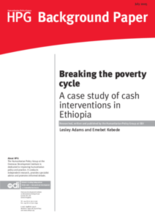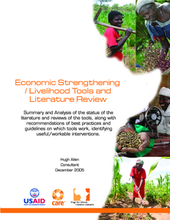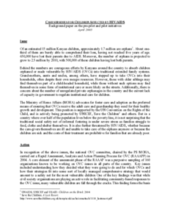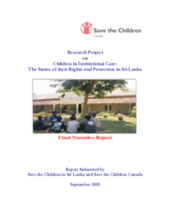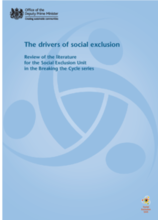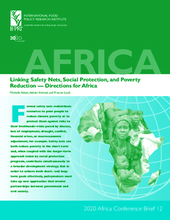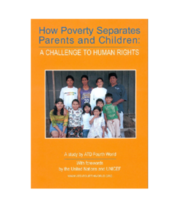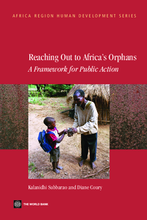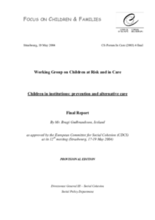Displaying 481 - 490 of 507
This paper examines the role, process and impact of cash transfer interventions in Ethiopia using several case studies. Challenges and recommendations for future cash interventions are discussed in-depth.
Summary and analysis of the status of the literature and reviews on economic strengthening and livelihood tools. Contains recommendations of best practices and guidelines on which tools work.
Outlines the impact of a pre-pilot conditional cash transfer scheme implemented in Kenya and defines key issues to be considered before moving forward into pilot and national schemes. Short annexes include tools/frameworks to guide implementation.
Evaluation of the Bolsa Escola Program, which was a Brazilian social services program that provided cash transfers to families provided that their school-aged children would be enrolled in and attending school. Examines how beneficiaries were selected, registered, and monitored. Cites inconsistencies in implementation and roles of municipal governments as significant finding.
A situation analysis of children in institutional care that includes policy implications and key recommendations.
This document is a literature review for the purpose of determining the drivers of social exclusion. Its objectives were to: 1) determine the current drivers; 2) determine emerging drivers that might have a future impact on social inclusion; 3) Assess the relative strength of drivers.
A short discussion of various safety net program options and considerations for effective program design. Focus on reducing poverty in sub-Saharan Africa
An executive summary of lessons learned on preventing family separation in poverty stricken communities. Brief case studies from Guatemala, Haiti, Philippines, United States and Burkina Faso.
A detailed book providing evidence-based guidelines for approaches and interventions to best mitigate the various risks confronted by OVC.
This report contains an overview of alternative care in Europe, the effects of institutions on children, statistical information and the different approaches of child protection systems within Europe. It includes reforming institutional care, foster care, post-care support, and the role of the social worker.

